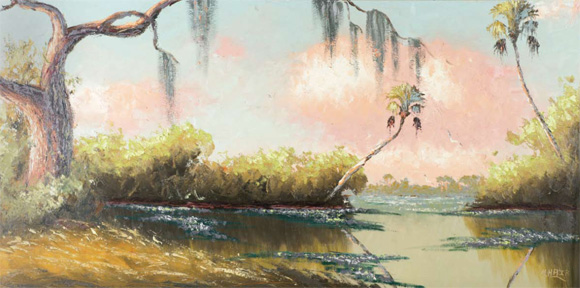

ABOUT THE BOOK
AboutThe Author
Foreword by Gary R. Libby
Excerpt

EXCERPT
Sunday night was not the night to howl. Friday night was. Saturday night was. But Sunday night was not. Sunday was the day of rest, the day to ask for forgiveness of the transgressions of Friday and Saturday night.
For Alfred Hair, there was never a day of rest. His life was lived in fast motion and he didn’t have time for rest. Late on a Sunday night, the Lord’s Day, Alfred Hair left the steamy August heat and walked into the smoke-dimmed light of Eddie’s Place,a local hang-out on the corner of 20th Street and Avenue D in Fort Pierce, a small city on Florida’s east coast. He had just returned from Miami and stopped in to let folks know he was back in town.
They already knew, though. No one could miss Alfred’s brand new blue Lincoln Continental Mark III parked out front.
There was an energy that ran through the bar the second Alfred entered it. That was the way he was. He lit up the dingy juke joint, buying a beer for everyone, laughing and joking with his old friends. He was smart, talented, and he had money. He was so handsome that it hardly mattered to most women who saw him that he was married and had six children. A little attention from Alfred was all anyone needed.
His friend and brother-in-law Carnell (“Pete”) Smith left him that night and headed down to the drive-in movie to be with his girlfriend. After all, Pete thought, Alfred was in good hands. Livingston (“Castro”) Roberts, Alfred’s best friend who was constantly at his side, was with him, and everyone knew Castro would do anything for Alfred. A man named Julius “J. L.” Funderberk, a thirty-one-year-old migrant fruit picker who had just returned home himself, watched Castro and Alfred with disdain from across the room. Money in his own pocket didn’t make him any less jealous. Alfred was buying a beer for a girl Funderberk had thought was his.
Anger seared through him. He pulled out his pistol and hit Castro with it.
Al “Blood” Black, another of Hair’s close friends watched as Funderburk strode over to the jukebox and defiantly punched one of its buttons down. The music poured out into the bar. It was a song they had all been listening to that summer, a mirror of the rage that was smoldering around the country, but somehow, it fit the moment just right.
“War, Whoa, Lord,” the jukebox wailed. “. . . Who wants to die?”
Funderberk raised the weapon and pointed it at Alfred.
“I’ll kill all of you painters in here,” he said.
Funderberk fired. Alfred stumbled, now caught in a slow motion wave as he made his way to the back door. Another shot rang out and he slumped down on the hard asphalt of Avenue D.
The last ride Alfred made in his precious Lincoln Continental was down Avenue D at breakneck speed, his brother at the wheel, while he lay bleeding in the back seat. Pete Smith heard the sirens and saw the flashing lights of a swarming parade of police as they headed toward his part of town, toward Avenue D. Satisfying his curiosity was better than watching any picture show, he thought, so he turned to follow the cars.
It seemed like every cop in St. Lucie County had surrounded Eddie’s.
The patrol car lights swirled a sickening beam against the green paint of the concrete block building, the driveway now full of onlookers. The realization hit him before he could even be told. He knew it in his heart.
At 11:40 p.m., Alfred Hair was pronounced dead at Fort Pierce Memorial Hospital. The next day, the headline in the local newspaper told the story that had spread through the town overnight: “Shot Down in Fort Pierce: Well-Known Artist Alfred Hair Slain.”
The entire community went into mourning for the twenty-nine-year-old man, who looked out from the grainy black-and-white photograph on the front page.
One of the most astonishing—and unorthodox—art enterprises of the twentieth century came to a halt that night on August 9, 1970. It had begun with an unlikely source, a young black man, Alfred Warner Hair. Now it was all in jeopardy because of two bullets and a beer. Thousands came to his funeral, but not one among them could have predicted that decades after his death, people would still be talking about Alfred Hair and the artists he inspired known later simply as “The Highwaymen.”
 Alfred Hair. Creekside |